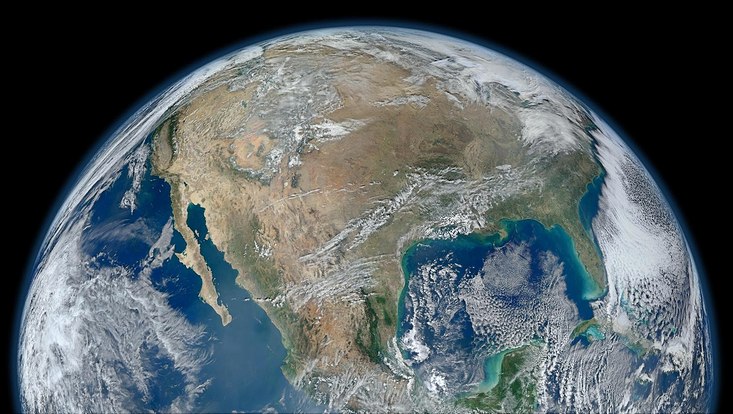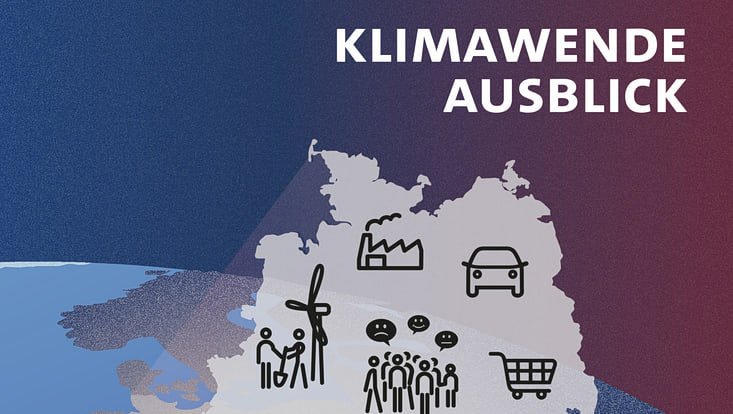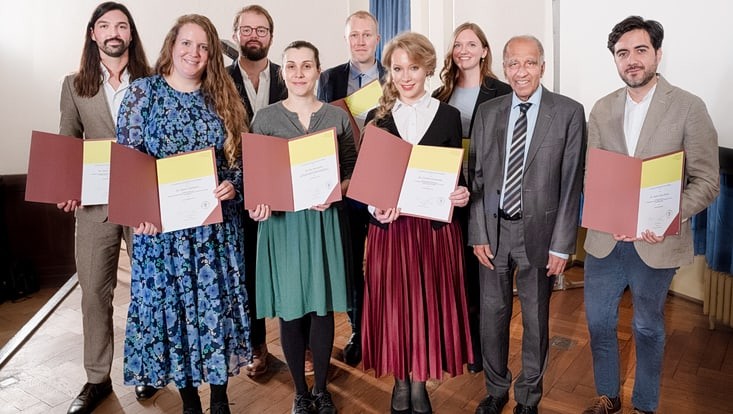and Society (CLICCS)
A digital twin of the Earth: what are the risks?
10 July 2024, by CLICCS News

Photo: NASA
The vision of the European Union and the European Space Agency ESA is bold: combining satellite data, computer-aided models and artificial intelligence to create a digital twin of our planet. This twin could be used to simulate future developments of the Earth system and its societies from the global to the local level. The provision of such an integrated global model would have significant advantages for climate science: it would combine observational data with computer models, integrate models of physical and social systems, and enable their scalability. However, the availability of such a digital twin of our planet also could have political implications – for example for the EU's climate security policy.
Dr. Delf Rothe has examined the opportunities and risks of governing with and through digital twins in a new article in the journal International Political Sociology. The promise of making the future predictable and therefore easier to manage has always had great political appeal. This also applies to the EU, where the vision of a digital twin Earth (DTE) is advanced with the Destination Earth (DestinE) initiative. Together with the European earth observation program Copernicus, DestinE would provide an important instrument for the European response to the climate crisis.
The tool could be used to identify natural disasters, conflicts, or migration movements at an early stage and take preventative action. The article describes this new way of governing future risks as a form of “planetary experimentation”. With the help of the DTE, for example, the impact of risky political decisions – such as a large-scale geoengineering program – could be simulated in advance in a safe virtual environment.
Political decision-making would increasingly be placed in the hands of a few
However, in addition to technical hurdles, the study also identifies several political risks that should be considered in the implementation of the program. First, the virtual environment of the digital twin and the physical Earth system are linked by feedback effects: the prospect of being able to simulate geoengineering experiments in a virtual environment could, for example, make the development of such approaches in the real world more likely. Furthermore, technologies such as AI or supercomputers consume enormous resources and energy, further contributing to global warming and other environmental changes. The digital twin influences the physical world and is closely interconnected with it.
Second, political decision-making would increasingly be placed in the hands of a small number of experts, as the use of a DTE requires specialized knowledge. Although existing use cases concern civilian problems such as climate change, the technology could also be used for military purposes. This could further restrict the spectrum of users.
Third, the global scale of the DTE abstracts from local realities and could make local knowledge invisible. According to Rothe, this raises questions of global justice: Whose futures are brought into focus by the DTE, and which are excluded?
In the study, the political scientist evaluated the development of the vision of a digital twin from 2019 to 2021. For his field research, he conducted qualitative interviews with 22 experts from the field of European space and technology policy, analyzed policy documents and official EU publications, and participated in expert meetings and conferences.
Publication
Rothe D (2024): When the World Is an Object: On the Governmental Promise of a Digital Twin Earth; International Political Sociology, Volume 18, Issue 3, September 2024, olae022 https://doi.org/10.1093/ips/olae022
The study is part of the CLICCS project B3 – Conflict and Cooperation at the Climate-Security Nexus. The project investigates societal and political coping mechanisms in the face of increasing climatic risk, including the use of digital technologies such as AI and satellite Earth observation.
Contact:
Dr. Delf Rothe
Universität Hamburg
Institute for Peace Research and Security Policy
Cluster of Excellence "Climate, Climatic Change, and Society" (CLICCS)
Phone: +49 40 8660-7785
Email: rothe"AT"ifsh.de


